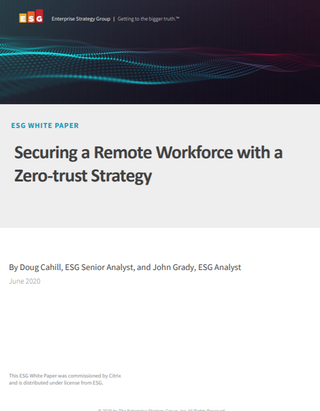NCSC battles surge of COVID-related cyber attacks
More than a quarter of all incidents reported in the last year were related to the coronavirus pandemic

The National Cyber Security Centre (NCSC) has been battling a surge in pandemic-related cyber attacks, reporting that more than a quarter of all security incidents reported in the last year were related to COVID-19.
The organisation handled 723 incidents between 1 September 2019 and 31 August 2020 increase from the 658 reported in the year prior.
In a blog post published today, the NCSC explained that the increase in cases “reflects ongoing NCSC efforts to proactively identify and mitigate threats, tips the organisation receives from its extensive network of partners and reports from victims themselves”.
Out of the 723 reported incidents, 194 were COVID-related. An example of such took place in July, when the NCSC revealed that a unit of Russian hackers had targeted UK companies and universities working on a potential vaccine.
In order to provide greater cyber security to the UK’s healthcare, the NCSC had scanned over million NHS IP addresses to check for weaknesses and found 51,000 Indicators of Compromise. The organisation also launched Active Cyber Defence (ACD) services to 235 front-line health bodies, including NHS Trusts.
Coronavirus was an exceptionally popular topic used by cyber criminals for online scams. In April, the NCSC launched the Suspicious Email Reporting Service which enabled members of the public to report incidents of phishing to the organisation. The service notably received one million scam email reports in just two months and, in its new Annual Review, the NCSC announced that it had received 2.3 million reports in the first four months since the launch of the service.
NCSC chief executive Lindy Cameron said the report “outlines the breadth of remarkable work delivered by the NCSC in the past year, largely against a backdrop of the shared global crisis of coronavirus”.
Get the ITPro. daily newsletter
Receive our latest news, industry updates, featured resources and more. Sign up today to receive our FREE report on AI cyber crime & security - newly updated for 2024.
“From handling hundreds of incidents to protecting our democratic institutions and keeping people safe while working remotely, our expertise has delivered across multiple frontiers,” she said.

Securing a remote workforce with a zero-trust strategy
Why zero-trust is the latest foundational cyber security construct for the modern workplace
“This has all been achieved with the fantastic support of government, businesses and citizens and I would urge them to continue contributing to our collective cyber security.”
Last week it was reported that the NCSC is working with the DHSC to make England and Wales’ NHS COVID-19 app interoperable with the UK’s other contact-tracing apps.
Having only graduated from City University in 2019, Sabina has already demonstrated her abilities as a keen writer and effective journalist. Currently a content writer for Drapers, Sabina spent a number of years writing for ITPro, specialising in networking and telecommunications, as well as charting the efforts of technology companies to improve their inclusion and diversity strategies, a topic close to her heart.
Sabina has also held a number of editorial roles at Harper's Bazaar, Cube Collective, and HighClouds.





